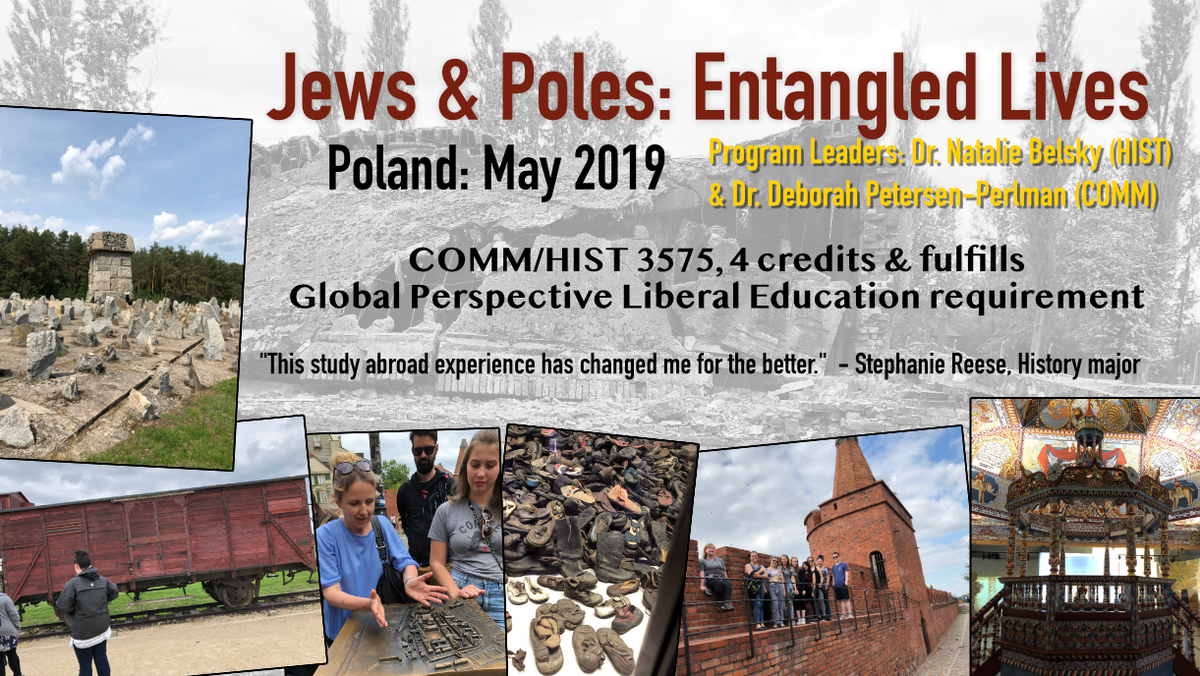
Jews & Poles: Entangled Lives
Program Leaders: Dr. Natalie Belsky (Department of History, Political Science & International Studies) & Dr. Deborah Petersen-Perlman (Department of Communication)
Cities: Krakow, Warsaw (with day trips to Auschwitz, Lodz, Treblinka, Czestochowa, as well as a shtetl tour)
Dates: May 18-June 2, 2019
Earn: 4 credits, COMM/HIST 3375. Fulfills Global Perspective Liberal Education requirement.
About the Class
This course focuses on the history, experience and memory of Jewish life in Poland. One of the focuses of the course will be the experience of discrimination and the history of the Holocaust in Poland. However, the course will also examine the ways in which both Poles and Jews contributed to and engaged with a rich cultural, social and economic life in communities across the region and, in some cases, continue to do so today. The course will consider the history and legacies of co-existence, interdependence, entanglement, tension & conflict that characterized relations between Poles, Jews, and other minority populations in this diverse geographic space. We will also explore the contentious contemporary debates over the politics of commemoration of Holocaust sites and Jewish life in Poland today.
Who, What, Where
Seven students traveled to Poland. We were fortunate to be able to work with API, which arranged guided tours of Krakow, Warsaw, Czestochowa, Auschwitz, Lodz, Treblinka, as well as a tour of shtetls in southwestern Poland. We visited the Jewish Community Center, as well as the "Under the Eagle" pharmacy and Schindler's Factory museums in Krakow; we went to Polin--the museum of Polish Jews, the Polish Rising Museum, the Jewish Historical Institute in Warsaw; and we visited the Ulma Family museum as part of our shtetl tour.
Why participate in this program?
Students who went on this trip truly "got their money's worth". Teachers and students alike learned so much by walking in the footsteps of those who went through the atrocity we call the Holocaust. We also got a sense of how things have changed (or not) over time vis a vis relationships between Jews and Poles. We considered the ways in which different museums and concentration camp sites presented stories and artifacts.
Most of us find ourselves overwhelmed and confused by the enormity of the tragedy of the Holocaust. Traveling to these sites is an important way to gain a unique perspective on the events of the war and gain a deeper understanding of Jewish life in Eastern Europe, the genocide and its consequences in a way that is really impossible to do in the classroom.